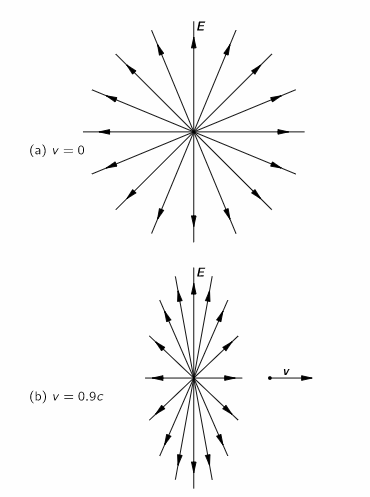Between two stationary charges, Newton's third law holds. But what if one of the charge is moving? Like, in moving charge, electric field is different with the field generated by stationary charge.
So let's think there are two charges. Charge with $q_1$ moves toward to another charge with $q_2$, that is stationary. The relative velocity is $v$. In this condition, what would be the force between two charges? Will the force be different with two stationary charges? Or will the force be same? Will the Newton's third law apply?

